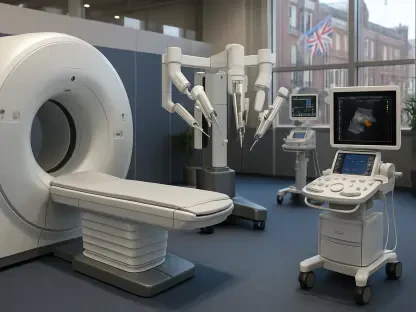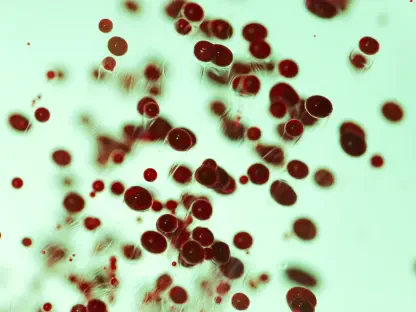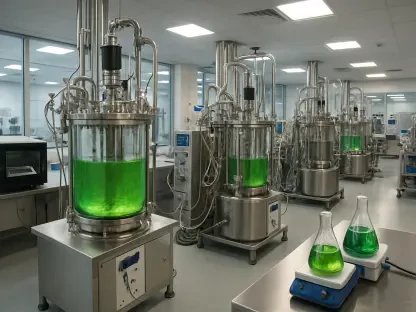Africa’s healthcare systems are at a critical juncture, heavily reliant on imported diagnostics, which exacerbates vulnerabilities during global health crises. This dependence not only creates economic challenges but also compromises the continent’s ability to respond swiftly to emerging health threats. The ongoing reliance on external sources for medical diagnostics underscores the fragmented nature of healthcare infrastructure across Africa, with an urgent need for reform. As the continent strives for improved health outcomes and economic sustainability, the development of a robust diagnostic ecosystem becomes paramount. This article examines potential solutions, emphasizing public-private partnerships (PPPs) and indigenous innovation as vital components in establishing a self-sufficient diagnostic framework in Africa.
The Compass of Healthcare
In the realm of healthcare, diagnostics play an indispensable role, akin to navigational tools that guide decision-making and planning. They enable accurate disease identification, inform treatment pathways, and are essential in outbreak response and control. Without reliable diagnostics, healthcare systems are blind to the realities of disease prevalence and progression, leading to suboptimal treatment outcomes and resource allocation. In Africa, the absence of locally produced diagnostics has long hindered the ability to achieve these critical healthcare goals. Investing in diagnostic capabilities is not just a question of health, but also of economic stability, as accurate diagnosis leads to cost-effective healthcare delivery and enhanced patient outcomes. Diagnostics, therefore, form the backbone of any effective healthcare system, enabling countries to achieve both health security and economic resilience.
The current diagnostic landscape in many African countries is marked by deficiencies, often characterized by a lack of adequate funding and infrastructure, compounded by high costs within privatized healthcare sectors. This fragmented system poses significant obstacles to delivering timely and accurate diagnosis, with consequences reaching far beyond individual patients. Public health planning relies on data gleaned from diagnostics, and without a dependable foundation, efforts to manage public health challenges are severely hampered. Hence, the importance of establishing indigenous diagnostic capabilities cannot be overstated. It not only enhances health system responsiveness but also empowers African nations to safeguard their populations through locally driven solutions, reducing dependence on global supply chains and mitigating the risks exposed during crises such as the recent COVID-19 pandemic.
Public-Private Partnership: The Blueprint for Change
Public-private partnerships offer a promising pathway to addressing the gaps in Africa’s diagnostic infrastructure. By leveraging the strengths of both the public and private sectors, PPPs can mitigate resource limitations while driving innovation in healthcare solutions. The public sector, with its mandate to ensure health equity and access, can provide a regulatory framework and socioeconomic incentives that encourage private sector participation. Meanwhile, the private sector excels in innovation, efficiency, and scalability, bringing advanced technologies and processes to the table. This symbiotic relationship can pave the way for the development of indigenous diagnostic solutions, ultimately fostering a healthcare landscape that is both resilient and self-sufficient.
PPPs are not a one-size-fits-all solution; they require careful planning and strategic alignment of interests between the involved parties. For these partnerships to be successful, they must be anchored in transparent governance structures that promote accountability and long-term commitment to mutual goals. Furthermore, facilitating the transfer of technological expertise and knowledge from private entities to public institutions is crucial in building local capacity. By prioritizing investments in local manufacturing, governments can reduce dependency on imports and ensure a more secure supply chain for critical diagnostics. This approach not only stabilizes healthcare delivery but also stimulates job creation and economic growth, aligning with broader developmental objectives in many African nations.
Embracing Indigenous Innovation
Contrary to prevalent misconceptions, Africa is home to an abundance of talent and innovative capacity in the healthcare sector. Medical Laboratory Scientists and Biomedical Engineers across the continent possess the knowledge and skills needed to design and develop rapid diagnostic tests and reagents. However, these innovations often remain confined within laboratories due to a lack of investment-readiness support and market linkage opportunities. By channeling resources into tailored training programs, emerging scientists can acquire essential business development skills, regulatory knowledge, and commercialization strategies, enabling them to transform their laboratory prototypes into market-ready products. Ensuring that these local innovations reach the broader healthcare market is crucial for fostering a self-sustaining diagnostic industry within Africa.
To fully realize the potential of indigenous innovation, it is imperative to build a supportive ecosystem that nurtures entrepreneurship and collaboration between stakeholders. Encouraging partnerships between scientists, entrepreneurs, academic institutions, and industry players can bridge the gap from innovation to implementation, creating a thriving environment for diagnostic advancement. This collaborative model not only accelerates the development and distribution of homegrown solutions but also empowers African nations to write their own narratives in healthcare innovation. As these efforts gain momentum, they contribute to a cycle of reinvestment in local research and development, further anchoring Africa’s position as a leader in the global diagnostic landscape.
Role of Academic and Research Institutions
Academic and research institutions play a pivotal role in the quest for diagnostic independence by fostering innovation and bridging the gap between research and practical application. These institutions serve as hubs of knowledge, research, and expertise, essential for developing and refining diagnostic technologies. By supporting ongoing research and development efforts, they contribute significantly to the pipeline of indigenous solutions that address local health challenges effectively. Collaborations between academia, industry, and healthcare providers can accelerate the transfer of cutting-edge technologies from the laboratory to the market, ensuring that innovations are not only conceived but also implemented at scale.
To maximize their impact, academic and research institutions must focus on fostering an interdisciplinary approach that integrates scientific research with entrepreneurial and business acumen. Developing curricula that encompass technical skills alongside business and regulatory training can equip future innovators with a comprehensive toolkit necessary for success. Additionally, these institutions can serve as catalysts for partnerships between the private sector, government, and international stakeholders, promoting an environment conducive to innovation and growth. By nurturing talent and expanding research capabilities, academic and research institutions can drive the development of a self-sufficient diagnostic infrastructure, essential for Africa’s long-term health security and economic stability.
Strategic Frameworks for Achieving Independence
Diagnostics serve a vital role similar to navigational aids that inform decisions and plans, allowing precise disease identification and guiding treatment decisions, which are critical for managing outbreaks. Without dependable diagnostics, healthcare systems cannot accurately assess disease prevalence and progression, resulting in poor treatment outcomes and misguided resource use. In Africa, a lack of local diagnostics has historically prevented achieving key healthcare objectives. Investing in diagnostics is not merely about health but also about economic stability, as accurate diagnostics lead to cost-effective healthcare and improved patient outcomes. Diagnostics are the foundation of a capable healthcare system, enabling countries to secure health and boost economic resilience.
In many African nations, the diagnostic landscape suffers from insufficient funding and infrastructure coupled with expensive private sectors. This disjointed system creates barriers to delivering timely diagnoses, affecting public health planning and response. Establishing local diagnostic abilities strengthens health systems, enabling African countries to protect their populations with homegrown solutions, reducing dependence on international supply chains and lessening risks highlighted by the COVID-19 pandemic.









